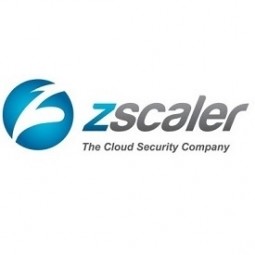Download PDF
API Group Enhances Security and Performance with Zscaler's Cloud-Based Solution
Technology Category
- Cybersecurity & Privacy - Application Security
- Networks & Connectivity - Gateways
Applicable Industries
- Packaging
- Telecommunications
Use Cases
- Traffic Monitoring
- Transportation Simulation
Services
- System Integration
The Challenge
API Group, a leading manufacturer of specialized materials for packaging, was facing significant challenges with their legacy IT solutions. The company's IT department was backhauling Internet traffic from all international offices to two central gateways in the UK and US, where URL and anti-virus filtering was handled using a traditional on-premise Web proxy-based solution. This process was not only cumbersome but also wasted much-needed and expensive bandwidth of their newly purchased Multi Packet Label Switching (MPLS) network. Additionally, the company lacked a reporting facility, making it difficult to monitor and manage their security posture effectively.
About The Customer
API Group is a globally recognized manufacturer of specialized materials for packaging. The company's foil, holographic, and laminate products are renowned for their quality and technical excellence. With business units spread across the United Kingdom, Continental Europe, USA, and Asia-Pacific, API Group has a significant international presence. The company's IT infrastructure is complex, with Internet traffic from all international offices being managed centrally from the UK and US. API Group had recently invested in a new Multi Packet Label Switching (MPLS) network, making efficient use of bandwidth a priority.
The Solution
API Group turned to Zscaler's cloud-based solution to address their challenges. Zscaler's web security service offered advanced threat protection against a range of security threats, including malicious active code, botnets, cookie theft, and phishing attacks. It also enforced granular user-based policies for Web 2.0 applications, provided URL filtering, and allowed management of Internet bandwidth. The service also offered full visibility of their security posture through a visual dashboard and powerful, real-time consolidated logging and reporting. API Group implemented a clientless deployment by forwarding web traffic directly from their employees’ browsers using Proxy Auto-Configuration files. This approach provided instant protection for API Group’s employees connected to the Internet from home or hotels. Furthermore, the global coverage of Zscaler’s cloud ensured minimum latency and a fast Internet experience for all API’s employees by sending traffic to a local enforcement node.
Operational Impact
Quantitative Benefit
Related Case Studies.

Case Study
IoT Data Analytics Case Study - Packaging Films Manufacturer
The company manufactures packaging films on made to order or configure to order basis. Every order has a different set of requirements from the product characteristics perspective and hence requires machine’s settings to be adjusted accordingly. If the film quality does not meet the required standards, the degraded quality impacts customer delivery causes customer dissatisfaction and results in lower margins. The biggest challenge was to identify the real root cause and devise a remedy for that.

Case Study
Zenon the Ideal Basis for An Ergonomic HMI
KHS develops and produces machines and equipment for filling and packaging in the drinks industry. Because drinks manufacturing, filling and packaging consist of a number of highly complex processes, the user-friendly and intuitive operation of equipment is increasingly gaining in significance. In order to design these processes as simple as possible for the user, KHS decided to introduce a uniform, transparent and standardized solution to the company. The HMI interface should meet the requirement for people with different qualifications and enable them to work on a standard platform.

Case Study
Vodafone Hosted On AWS
Vodafone found that traffic for the applications peak during the four-month period when the international cricket season is at its height in Australia. During the 2011/2012 cricket season, 700,000 consumers downloaded the Cricket Live Australia application. Vodafone needed to be able to meet customer demand, but didn’t want to invest in additional resources that would be underutilized during cricket’s off-season.

Case Study
SKT, Construction of Smart Office Environment
SK T-Tower is the headquarters of SK Telecom. Inside the building, different types of mobile devices, such as laptops, smartphones and tablets, are in use, and with the increase in WLAN traffic and the use of quality multimedia data, the volume of wireless data sees an explosive growth. Users want limitless Internet access in various places in addition to designated areas.







